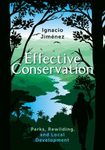![The Battle for Yellowstone The Battle for Yellowstone]()
Click to have a closer look
About this book
Contents
Customer reviews
Biography
Related titles
About this book
Yellowstone holds a special place in America's heart. As the world's first national park, it is globally recognized as the crown jewel of modern environmental preservation. But the park and its surrounding regions have recently become a lightning rod for environmental conflict, plagued by intense and intractable political struggles among the federal government, National Park Service, environmentalists, industry, local residents, and elected officials.
The Battle for Yellowstone asks why it is that, with the flood of expert scientific, economic, and legal efforts to resolve disagreements over Yellowstone, there is no improvement? Why do even seemingly minor issues erupt into impassioned disputes? What can Yellowstone teach us about the worsening environmental conflicts worldwide? Justin Farrell argues that the battle for Yellowstone has deep moral, cultural, and spiritual roots that until now have been obscured by the supposedly rational and technical nature of the conflict. Tracing in unprecedented detail the moral causes and consequences of large-scale social change in the American West, he describes how a "new-west" social order has emerged that has devalued traditional American beliefs about manifest destiny and rugged individualism, and how morality and spirituality have influenced the most polarizing and techno-centric conflicts in Yellowstone's history.
This groundbreaking book shows how the unprecedented conflict over Yellowstone is not all about science, law, or economic interests, but more surprisingly, is about cultural upheaval and the construction of new moral and spiritual boundaries in the American West.
Contents
List of Illustrations ix
List of Tables xiii
Acknowledgments xv
Introduction: Bringing Moral Culture into the Fray 1
Introducing the Greater Yellowstone Ecosystem 5
Toward a Theory of Morality and Environment 8
Human Believers, Narrative Structure, and Enacting Moral Orders 12
Theoretical Contributions 17
A Roadmap 29
1.Believing in Yellowstone: The Moralization of Nature and the Creation of America's Eden 34
Early Utilitarian Use and the Formation of Yellowstone National Park 40
A Spiritual Moral Vision 52
A Biocentric Moral Vision 56
Social Change and the "Greater" Yellowstone Ecosystem 60
Conclusion 65
2.The New (Wild) West: Social Upheaval, Moral Devaluation, and the Rise of Conflict 66
The Old West, and Roots of the New 70
The Rise of the New-West 75
The Moral Effects of New-West Change 89
Environmental Conflict 96
Greater Yellowstone Ecosystem Stakeholder Arena 100
The Rise of Conflict, 1870-2012 108
Conclusion 118
3.Buffalo Crusaders: The Sacred Struggle for America's LastWild and Pure Herd 119
Overview of the Issue 122
The Buffalo Field Campaign 125
The Moral Logic of a Movement: Purity, Wildness, Virtue 132
Successes of Moral-Spiritual Protest 146
Concluding Puzzle: Religious and Moral "Muting" 159
Conclusion 166
4.Between Good and Evil: The Science, Culture, and Polarization of Wolf Conflict 168
Uncovering the Anti-Wolf Moral Order 172
Rugged American Individualism 174
Human Dominionism 180
Simple and Sacred Heritage 188
Uncovering the Pro-Wolf Moral Order 196
Features of the Pro-Wolf Moral Order 198
The Primary Role of Morality and Spirituality 203
Multiple Meanings: Co-Occurrence of Spirituality and Rationality 208
Conclusion 213
5.Drilling Our Soul: Moral Boundary Work in an Unlikely Old-West Fight against Fracking 217
A State of Mining 221
Drilling in the Greater Yellowstone Ecosystem 225
Considering Alternative Explanations 233
"Too Special to Drill": Place Attachment and Drawing Moral Boundaries 238
Three Profiles of Old-West Environmentalists 243
Moral Boundary Work and the Meaning of Activism 252
Conclusion 256
Conclusion 258
Appendix: Methodological Notes 263
Bibliography 271
Index 283
Customer Reviews
Biography
Justin Farrell is assistant professor of sociology in the School of Forestry and Environmental Studies at Yale University.
By: Justin Farrell(Author)
291 pages, 52 b/w photos, 31 b/w illustrations, 6 tables
"The most original political book of early 2015 is not formally about politics at all. Instead The Battle for Yellowstone by Justin Farrell, a young scholar at Yale University, ponders venomous rows that have shaken Yellowstone National Park in recent decades, and why they are so intractable."
– Economist
"In a refreshingly honest and balanced treatment, Farrell (sociology, Yale Univ.) addresses the spiritual elephant in the environmental room: the most perplexing environmental questions, the answers to which 'are only possible and made meaningful in the context of larger moral orders and spiritual narratives that shared human cultures are built upon.' With great insight and careful analysis, he examines the various reasons deep moral and spiritual meanings are often ignored, muted, and misunderstood. His scholarly diagnosis is well documented and thoroughly researched."
– Choice
"Farrell presents an original and compelling view of what constitutes the relevant aspects of a moral framework for understanding environmental conflicts. The scholarship is impressive."
– Robert Wuthnow, author of Rough Country: How Texas Became America's Most Powerful Bible-Belt State
"Building his case on one of the most iconic national parks in the world, Farrell shows very convincingly that if we do not take into account the quasi-religious dimension of environmental conflicts, we will not be able to understand persistent clashes over land, resources, and environmental uses."
– Louis Guay, Laval University, Canada




































